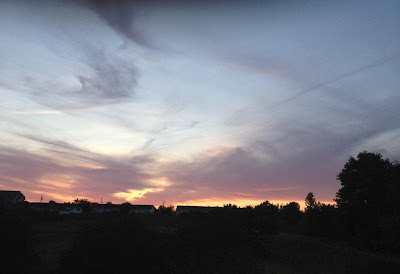John of the Cross and the contemplative life
What is the contemplative life? What does it entail? What is its purpose? Let’s start our study of St. John of the Cross’s spirituality with these questions. Fr. Gabriel of St. Mary Magdalen writes in Union with God According to St. John of the Cross : [The contemplative life] is the form of Christian life that tends to intimacy with God by means of the assiduous exercise of prayer and mortification.” The Catholic Encyclopedia at New Advent defines it this way: A life ordered in view of contemplation; a way of living especially adapted to lead to and facilitate contemplation, while it excludes all other preoccupations and intents.” Continue reading at Contemplative Homeschool.
.jpg)

